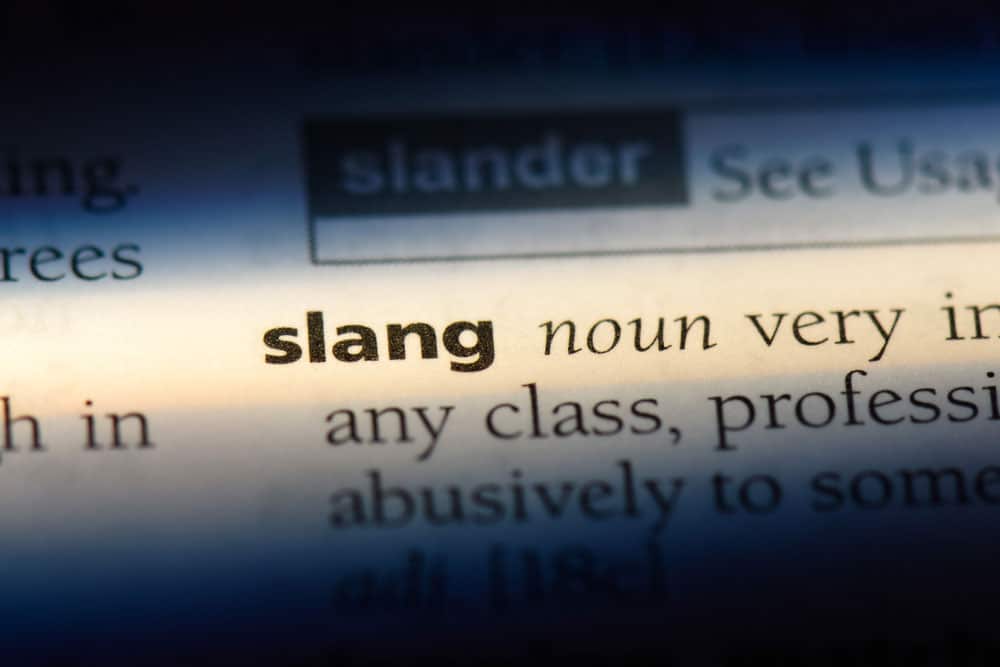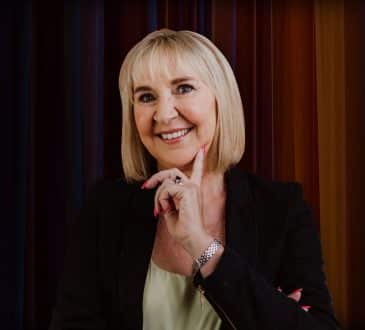Retired Slangs: A Linguistic Exploration of Popular Expressions Gone By

Language is constantly evolving, and so too are the words and phrases we use to communicate. Over the years, we’ve seen a multitude of slang words and expressions surge in popularity, only to fade into obscurity as time marches on. These once-trendy terms, once uttered with enthusiasm and frequency, now languish in the linguistic graveyard of obsolete slang. In this exploration, we delve into the fascinating world of popular slang words that are no longer in vogue, shedding light on the ever-shifting nature of language and the cultural forces that shape it.
- Fourscore
This word was first used in the 13th century. A score is twenty, and fourscore means four times twenty, or eighty. The term dates back to the 13th century. While it’s no longer used in everyday speech, it’s embedded in the American psyche as the first word of President Abraham Lincoln’s Gettysburg Address: “Fourscore and seven years ago…” - Camelopard
This word was first used in the 14th century. Camelopard, or giraffe, dates back to the 14th century. While it has Greek and Latin roots and is totally archaic, it’s easy enough to see its origin — it combines the words for camel and leopard. - Bumper
This word was first used in the 17th century. Bumper has a number of meanings, including a generous glass of an alcoholic drink. It dates back to the 1600s and was included in Samuel Johnson’s dictionary in 1755. Nobody calls a full glass a bumper now, but they might have a bumper crop. - Scaramouche
This word was first used in 17th century. The scaramouche — a boastful but cowardly person — was a stock character in Italian comedy three centuries ago. Scaramouche was famously reintroduced into popular culture, if not everyday use, when it featured in the lyrics of Queen’s song “Bohemian Rhapsody.” - Rapscallion
This word was first used in the 17th century. Rapscallion, a mischievous person, derives from the word rascal and was in use from the 17th century. It began as rascallion, and somebody added the “p” to make the meaning even worse. - Handmaid
This word was first used in the 14th century. Handmaid, meaning a female servant, dates back to the 1300s. Now, very few people have servants, and nobody has handmaids. However, the term reentered popular culture because of the success of Margaret Atwood’s novel “The Handmaid’s Tale” and its television series adaptation. - Bibliopole
This word was first used in the 16th century. The first use of bibliopole for a dealer in books was in the 16th century. It has Greek roots and combines the words for book and sell. We no longer have bibliopoles, but we certainly have bibliophiles. - Ye
This word was first used in the pre-12th century. Ye is an Old English word for you plural. While it sounds archaic to American ears, it is still used in parts of Britain and Ireland. - Ambuscade
This word was first used in the 16th century. Ambuscade, meaning ambush, derives from Old Italian by way of Middle French. It originally meant forest, a good place for an ambush. - Cutpurse
This word was first used in the 14th century. The meaning and derivation of cutpurse should be clear to most people, even if it is no longer used regularly. A cutpurse is a pickpocket, and the word was used since the 14th century when people would carry their purses held by a strap or string. - Jakes
This word was first used in the 16th century. The use of jakes for an outdoor toilet dates back at least to the 16th century. There doesn’t seem to be agreement about the origin — some suggest it derives from the French name Jacques. The cognate jacks is still used in Ireland. - Apothecary
This word was first used in the 14th century. The word apothecary, meaning a person who prepares and sells medicine, derived from the Latin word apotheca, or storehouse. Two words with similar origins are still in use — bodega and boutique. - Mooncalf
This word was first used in the 17th century. A mooncalf is a foolish or absentminded person. While no one uses this word anymore, it has made a reappearance in popular culture. Harry Potter fans will know that a mooncalf is a shy magical creature that only comes out of its burrow when there’s a full moon. - Egad
This word was first used in the 17th century. Egad was once used to express surprise or anger. It is believed to derive from Oh God. Some of the words on our list are minced oaths — euphemistic versions of profane or blasphemous terms. - Yclept
This word was first used in Old English. Yclept, or “by the name of,” is an Old English word meaning it’s really, really old. It’s also one of the small number of English words that have ‘y’ as a vowel at the beginning. - Zounds
This word was first used in the 17th century. Zounds is an expression of surprise or indignation and dates back to the 1600s. It’s another minced oath — an abbreviation of God’s wounds. - Avaunt
This word was first used in the 15th century. Avaunt is a Middle English word meaning go away — and it has gone away. It dates back to the 15th century. It derives from Latin by way of Anglo-French and means forward or before. - Floppy Disk
This word was first used in the 20th century. Floppy disks were widely used for data storage from the mid-1970s up to the beginning of the 21st century. We no longer use them for anything, and so we no longer use the term. - Fandangle
This word was first used in the 19th century. Fandangle, a useless or purely ornamental thing, dates back to 1835 and is thought to have originated in the southern United States. It may derive from fandango, the Spanish dance (which also features in the lyrics of Queen’s “Bohemian Rhapsody”). - Coxcomb
This word was first used in the 16th century. Coxcomb started out as cock’s comb, or cockscomb. It was the traditional cap worn by a jester — a professional fool — and resembled a rooster. In the 16th century, it came to mean a vain and conceited man, or dandy. - Horseless carriage
This word was first used in the 19th century. Horseless carriage was an early name for the automobile and dates back to the end of the 19th century. Prior to that, horses were commonly used to pull carriages. Now, nobody says horseless carriage. Even motor car sounds dated. - Walkman
This word was first used in the 20th century. The Sony Walkman, a portable cassette player, debuted in 1979 and was in production for 30 years. Once everybody seemed to have a Walkman, now nobody does. The cassette is also history — it gave way to the CD, which gave way to the digital download. - Gadzooks
This word was first used in the 17th century. Gadzooks, an expression of surprise or annoyance and a mild oath, possibly derives from God’s hooks, the nails of the Crucifixion. - Dame
This word was first used in the 14th century. Dame has Latin and French roots and came to mean an elderly or mature woman in the 14th century. It came to be a slang term for any woman in America in the early 20th century. Its popularity was reflected in the 1949 Richard Rodgers song, “There is Nothin’ Like a Dame,” but it has been out of favor for a long time. - Strumpet
This word was first used in the 14th century. The Middle English word strumpet, a female prostitute or a promiscuous woman, appeared in the 14th century. It’s archaic but made a reappearance in James Plunkett’s 1969 novel “Strumpet City,” about Dublin in the early 20th century. - Circumjacent
This word was first used in the 15th century. Circumjacent, meaning surrounding, originated in the 15th century and combines the Latin words for around and to lie. We still use words with these components, such as circumnavigate (to travel around) and adjacent (next to). - Baseborn
This word was first used in the 16th century. Baseborn, meaning of low birth or social standing, dates back to the 16th century. It’s probably a good thing that it’s no longer used as it reflects class-consciousness and the stigmatization of illegitimacy that are no longer acceptable. - Peeler
This word was first used in 19th century. Police officers in Britain were once commonly referred to as Peelers. The term derived from Sir Robert Peel (1788 – 1850), who established London’s Metropolitan Police Force. The term Bobbies, which was also inspired by Sir Robert, is still in use. - Aliment
This word was first used in the 15th century. Aliment, meaning food or nourishment, dates from the 15th century and comes from the Latin alere, meaning to nourish. Nobody says aliment anymore, but everybody has an alimentary canal, the tube in the body through which food passes. - Intelligencer
This word was first used in the 16th century. The use of intelligencer to describe a person who gathers intelligence dates back to the 1580s. It also appeared as the name of a newspaper in the following century. While the former meaning is archaic, there are still Intelligencers being published in various parts of the United States and Canada.
As we bid adieu to the popular slang words of yesteryear, it’s important to recognize that the ebb and flow of language is a natural process. Slang words come and go, reflecting the changing attitudes, values, and trends of society. While some might mourn the loss of these linguistic relics, they serve as a reminder of the dynamic and adaptable nature of human communication.
Just as the old slang words have faded, new ones have emerged to take their place, ensuring that our language remains a vibrant and ever-evolving reflection of our culture. So, whether you’re reminiscing about the slang of your youth or embracing the latest linguistic innovations, remember that the only constant in language is change, and that’s what makes it so endlessly fascinating.
Have you read?
Scorecard: These are the world’s top manufacturing countries, 2023.
Ranked: These Are The countries With The Highest Inflation Rate.
Ranked: 20 of the world’s youngest billionaires in 2023.
Countries and Territories Without Standing Military Forces.
Countries that need nurses and midwives the most, 2023.
Bring the best of the CEOWORLD magazine's global journalism to audiences in the United States and around the world. - Add CEOWORLD magazine to your Google News feed.
Follow CEOWORLD magazine headlines on: Google News, LinkedIn, Twitter, and Facebook.
Copyright 2025 The CEOWORLD magazine. All rights reserved. This material (and any extract from it) must not be copied, redistributed or placed on any website, without CEOWORLD magazine' prior written consent. For media queries, please contact: info@ceoworld.biz











